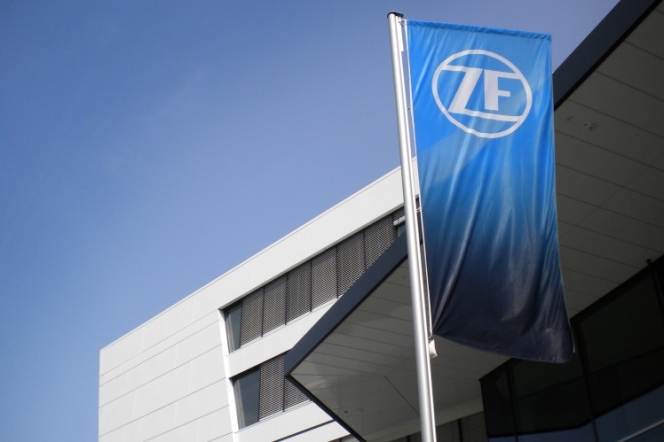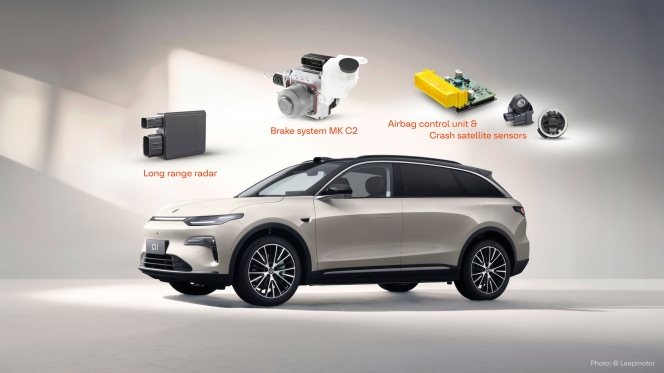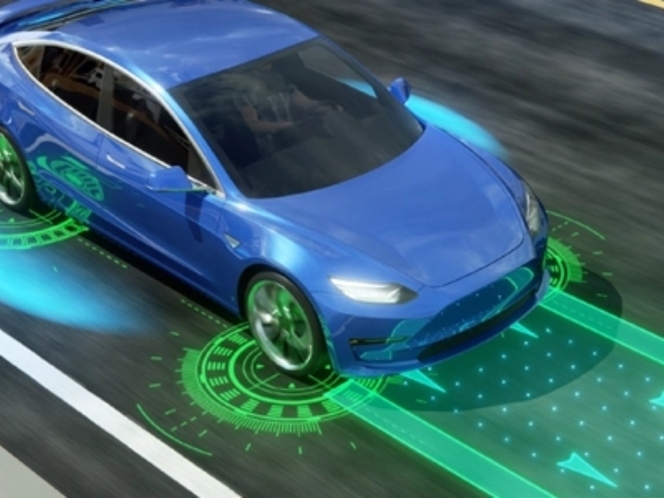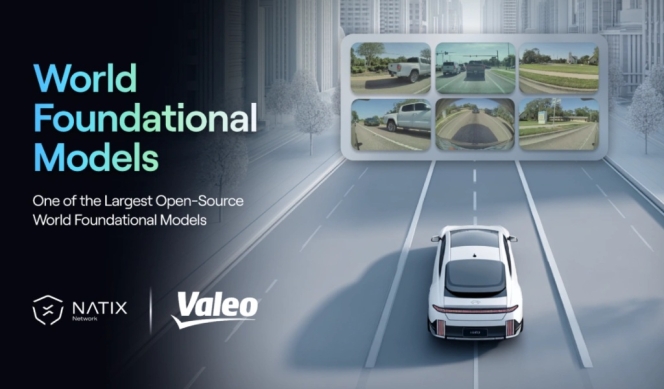Making vehicles (SaaS)y
- By Juili Eklahare
- October 07, 2022

There are increasing software components to vehicles, with new intelligence being added and them getting more sophisticated. SaaS is a way to deliver the software, and we are seeing more software in the automotive industry. Venkat Nathan, Founder and CEO, Nesh LIVE, talks to us about the start-up’s transition to a vehicle connectivity solutions company, their USP and more.
While we see large players like Tesla choosing to build their vehicle connectivity solutions inhouse, SaaS could be the way to go for medium to small players in the automotive OEM space to enable these solutions. However, they may need to approach companies that offer full-stack SaaS solutions for vehicle connectivity to compete with the large players.
One such company is Nesh LIVE, which provides SaaS solutions for vehicle connectivity and was selected by Stanford University as one of the promising start-ups in India under the Seed Transformation Programme in 2017, and has close to about 100,000 vehicles in its system. Moreover, the start-up has been working with vehicle manufacturers for close to five years now.
“Our solutions are deployed at leading truck, bus and off-road vehicle manufacturers. Besides this, we are also working with electric vehicle (EV) manufacturers right now,” says Venkat Nathan, Founder and CEO, Nesh LIVE. “We are working towards helping these manufacturers extract, transfer and analyse battery and vehicle data in the cloud. This in turn is the bedrock for any mobility – that bedrock is quality data, and quality data comes with connectivity right at the production line and the latest sensors supporting the extractions. So when a vehicle is born, the sensors are put in right at the time of its birth as an OEM fitment rather than leaving it to the customer to buy it as an aftermarket fitment.”
The three-dimensional way
Nesh LIVE’s specialisation is that it works with manufacturers early on and tries to integrate its products into the manufacturing line. That way, the whole ecosystem benefits from quality data. In order to build intelligent insights on data, connectivity has to have all the dimensions, from vehicle data to user-behaviour to the environment. The start-up attacks the automotive OEMs’ problems in this three-dimensional way. Doing this provides insights not just for the manufacturers but for the entire network – everyone in the chain is allowed to see and access information that they are allowed to see and access.
The rating system
“Today, we collect close to 100 million data points a day. Nesh LIVE also provides rating systems for the vehicle as a feature, based on the data they get,” says Nathan and goes on, “This rating is useful for the fleet owner.”
The rating system is provided for the vehicle and drivers, and now Nesh LIVE will be extending very similar algorithms for battery rating of electric vehicles. There are a number of applications for battery rating; for one, it helps the user understand the health of the battery. And secondly, as these batteries come up for reuse in other sectors, the grading system will help decide their afterlife in the long run. In fact, the vehicle rating system helps people anonymously compare their own vehicles within their own fleet and other fleets as well.
“In summary, we identify what data is needed and work with the automotive manufacturers. We then extract that data and send it to the cloud. Once that data is sent to the cloud, we run a lot of analytics in the cloud and then provide insights to different stakeholders,” Nathan makes clear.
Nesh LIVE’s SaaS solution – from ICEs to EVs
Some aspects of the SaaS feature are common, while some are industry-specific. “For instance, bus manufacturers want to know when the bus shows the pick-up location in advance. While all applications need to be highly accurate, the accuracy requirements in the bus segment are much higher within SaaS,” Nathan tells us and goes on, “However, in case of construction equipment like earth movers, for instance, there is greater importance to monitoring its working hours rather than accuracy of its location since it is mostly restricted to select zones. Hence, there are small variations from segment to segment. Even EVs have some variations that we are addressing right now.”
Elaborating further on this, Nathan says, “The EV industry is very interested in having a lot of analytics on battery, especially the charging and discharging cycles and health of the battery. This in turn impacts the range of the vehicle, and the range of a vehicle is dynamic. The dynamic range prediction needs to take into account, along with the driver behaviour, such as braking and speed, the usage of the vehicle, the environment, the road surface etc.”
“The SaaS offerings include the mobile app for the driver. For example, the driver gets push notifications based on what we see in terms of his/her handling the vehicle, the way he/she drives, the battery being due for service etc. Besides, we also educate and engage the user for best practices of the EV vehicle,” he adds.
From mobile applications to vehicle connectivity solutions
In fact, Nesh LIVE was initially into building mobile applications for the fleet industry when the product was launched in 2015, before venturing into vehicle connectivity solutions. However, the transition wasn’t too difficult as the two fields are very related, Nathan claims. He asserts, “When we started back in 2015, we started with applications on the phone, predominantly focused on the driver dimension. We provided the driver with an app, like Ola or Uber do today, and basically tracked the phone. The industry had just begun to explore other forms of connectivity of tracking a vehicle back then. So what started in 2015 as GPS tracking and reporting has slowly morphed into a huge vehicle intelligence and analytics platform.”
GPS tracking was, in truth, seen as a low-end commodity product back in 2015. “So when we approached large automotive suppliers with our solution, they approached it cautiously,” Nathan tells us and continues, “However, we had to really convince them that while today it is only GPS, tomorrow it will be the black box of the vehicle – like the Wi-Fi of a house – enabling connectivity and becoming the point of access to the internet.”
Therefore, while the transition for the company from a technical perspective wasn’t much, convincing customers to adopt the technology and telling them that it would morph into providing intelligence for the vehicle and improving its efficiency and safety was difficult back then. “However, we saw the perspective change after 2019. Today, the end-user wants intelligent insights,” Nathan explains.
He further adds that Nesh LIVE has also created virtual sensors that direct the load of the vehicle. “We can tell if a vehicle is travelling with or without load by algorithms. This has further increased the utilisation of the vehicle,” he informs.
Reinventing and staying ahead
While the start-up has come a long way since its inception, it has to face competition like any other organisation and industry. Nathan cites that Nesh LIVE has competition at two levels – the IoT level and the transporter level.
“The IoT-level competition is quite generic and not focused on automotive; data is collected from any industrial equipment, is processed and analytics on it is provided. It is very broad-based,” he explains and goes on, “On the other hand, Nesh LIVE is very automotive-niche; we have people with experience in automotives and we have worked with automotive companies for nearly seven years. Therefore, we have built up a lot of domain knowledge that comes in handy to provide advanced analytics.”
“At the transporter level, one will find companies providing good GPS tracking solutions to transporters. These competitors are at the transporter level, meeting their respective needs,” Nathan further explains.
Coming to where Nesh LIVE stands out, Nathan highlights, “Our start-up does not provide just for the transporters. Our USP is that we provide a lot of features for the auto manufacturer, including the dealers and service network of the manufacturer. And all of this is automated as a production line fitment at the manufacturing line. So we try to stay ahead by being domain-focused and being a very holistic end-to-end player for the ecosystem – not just for the transporter.”
But staying ahead of the competition is not enough. Nesh LIVE has also been constantly working on enhancing its SaaS platform. The start-up invests 20-30 percent into new R&D initiatives of SaaS and is continuously improving. In fact, it has customers in Canada and has ongoing trials in Dubai and the US. Moreover, it has already run some trials in Nigeria.
Cater to the automotive ecosystem
Today, it’s all about providing intelligent insights, which has been a pull from the end-users themselves. The end-users want to increase their vehicle utilisation and get more revenue out of it. What’s more important is that the software architecture has to show agility for the vehicle from the very first day. Therefore, SaaS technology will not only improve the safety but also the efficiency and operation of every vehicle, and last but not least, help cater to the automotive ecosystem.
ZF, BMW Sign Long-Term Supply Agreement For Drive Technologies
- By MT Bureau
- February 03, 2026

German tier 1 supplier ZF Friedrichshafen and the BMW Group have entered into a long-term supply agreement for passenger car drive systems. The contract, valued at several billion euros, extends until the late 2030s.
The agreement focuses on the supply and continued development of the 8-speed automatic transmission (8HP). The partners aim to support low-emission mobility and maintain technological flexibility during the industry transition.
A central component of the partnership is the technical evolution of the 8HP transmission kit to meet the requirements of electrified drives. The development will focus on increasing efficiency and performance for future vehicle concepts.
Mathias Miedreich, CEO of ZF, said, “Together with BMW, we are sending a strong signal for innovation, efficiency, and sustainability in an industry undergoing dynamic change. This agreement highlights the strategic importance of our 8-speed automatic transmission as a key technology for the transformation of drive systems.”
The duration of the contract provides both ZF and BMW with planning stability in a changing market. ZF aims to strengthen its position as a system supplier while reducing risks through close collaboration with the carmaker.
Sebastian Schmitt, Head of ZF's Electrified Drive Technologies division, explained, “The new agreement with BMW shows how important long-term planning horizons are for technological advancements. It creates clarity and stability for both companies and enables us to align the next generation of the 8HP specifically toward efficiency, performance, and long-term viability.”
Leapmotor Selects Aumovio For Safety Technologies
- By MT Bureau
- February 02, 2026

Aumovio has entered a supply agreement with Chinese electric vehicle manufacturer Leapmotor to provide safety components for the carmaker’s B and C platforms.
Several models within Leapmotor’s B platform now utilise Aumovio's long-range radar, electric parking brake and airbag control unit (ACU). Models on the C platform, including the C10, C11 and C16 SUVs, feature the latest generation of the MK C2 one-box brake system, alongside the long-range radar and ACU.
The project was completed with a development cycle approximately one-third shorter than traditional automotive timelines. Aumovio attributed its speed to ‘local-for-local’ strategy in China, where the company operates 20 sites and employs around 10,000 staff. In 2024, Aumovio held a 14 percent share of market revenue in the region.
The supplied technologies include:
- MK C2 Brake System: A unit combining the master cylinder, electronic brake system, and brake booster. It is produced locally in Shanghai.
- Long-Range Radar: A sensor with a detection range of up to 280 metres, used for driver assistance across both platforms.
- Airbag Control Unit (ACU): Integrated with crash satellite sensors, these components are manufactured in Changchun.
Boris Mergell, Head of the Safety and Motion business area at Aumovio, said, “Pairing ‘China speed’ with ‘German quality’ technologies helped us to support a rapid roll-out with our latest safety technologies. This underscores Aumovio’s course towards an adaptive powerhouse that works flexibly and closely with customers to innovate. It also shows that we continue to strengthen our customer relationships in the important market China.”
The partnership supports Leapmotor’s international presence. The B10 and B05 models, which feature Aumovio's ACU and radar technology, were showcased at the IAA 2025 in Munich as part of the manufacturer's European entry.
LTTS Secures Multi-Year Deal From Automotive OEM For Engineering And R&D
- By MT Bureau
- January 28, 2026

Bengaluru-headquartered ER&D company L&T Technology Services (LTTS) has announced a multi-year engagement within its mobility segment from an automotive manufacturer. The agreement involves software, connectivity and digital engineering services across vehicle technology domains. This win follows the company’s investments in R&D labs and mobility infrastructure designed for programs with global manufacturers.
The engagement covers mobility engineering capabilities, including embedded systems, digital platforms, verification and validation, cloud integration and cybersecurity. LTTS intends to use its engineering expertise and delivery frameworks to support the customer's technology roadmap.
At present, LTTS operates 22 design centres and 100 innovation labs globally.
The agreement strengthens the partnership between LTTS and the automotive manufacturer in the area of mobility engineering. The company provides design, development, and testing services across the mobility, sustainability, and tech segments.
Alind Saxena, Executive Director and President, Mobility and Tech at L&T Technology Services, said, “We are proud to deepen our partnership with the valued customer through this strategic engagement. LTTS brings together domain-led engineering, secure development practices and excellence in global delivery to accelerate the future of premium mobility. The win reflects the trust placed in our teams and our commitment to delivering world-class engineering at scale”.
Valeo And NATIX Network Partner To Develop Open-Source World Foundation Model
- By MT Bureau
- January 25, 2026

French technology company Valeo and NATIX Network have announced a partnership to develop a multi-camera World Foundation Model (WFM). The project combines Valeo’s research in artificial intelligence and generative modelling with NATIX’s decentralised physical infrastructure network (DePIN) to create an open-source platform for autonomous driving and robotics.
The initiative aims to move beyond perception-based models by creating a system capable of predicting future states and reasoning about physical interactions in a four-dimensional environment. The model will be trained using NATIX’s data network, which has collected 600,000 hours of video data across the US, Europe and Asia over seven months. This data provides the multi-camera inputs necessary for the spatial perception required by autonomous vehicles and robots.
The partnership builds upon Valeo’s existing open-source frameworks, VaViM (Video Autoregressive Model) and VaVAM (Video-Action Model). While these frameworks were previously trained primarily on front-camera datasets, the integration of NATIX’s multi-camera network expands the AI’s field of vision to 360 degrees.
Under the open-source framework, the partners will release models, datasets and training tools. This approach is intended to allow the research community to fine-tune models and benchmark physical AI across various driving conditions and geographic regions. The collaboration seeks to accelerate the deployment of end-to-end AI models by learning from real-world edge cases captured by vehicles in operation.
Marc Vrecko, Chief Executive Officer, Valeo’s Brain Division, said, “Since our creation in 2018, Valeo’s AI research center has been at the forefront of AI research in the automotive industry, especially in the fields of assisted and autonomous driving. Our goal has always been to advance mobility intelligence safely and responsibly. By combining Valeo’s generative world modeling research expertise with NATIX’s global multi-camera data, we are accelerating both the quality and the accessibility of next-generation end-to-end AI models, enabling the research community to build upon strong open models.”
Alireza Ghods, CEO and Co-Founder, NATIX, added, “WFMs are a once-in-a-generation opportunity — similar to the rise of LLMs in 2017–2020. The teams that build the first scalable world models will define the foundation of the next AI wave: Physical AIs. With our distributed multi-camera network, NATIX has a clear advantage of being able to move faster than large OEMs.”







Comments (0)
ADD COMMENT